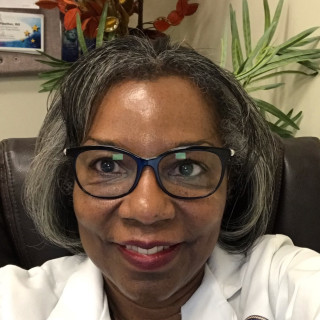All of the other patients in the group spoke, except for him. It was my first group. I was sitting quietly too, as my co-leader, a non-physician, led the group — “The Schizophrenia Group.” It was my third year of psychiatry residency, and I was assigned to this group for a year.
On the first day, I tried to learn how to run a group and learn about the patients. I would begin to see them individually the following week for assessments and medication management. There were eight patients in the group. They appeared to be comfortable with one another, except for one particular gentleman. He sat quietly, a fixed and polite half-smile on his face, looked at them when they spoke, seemed to hear what they said, but volunteered nothing. No one seemed to expect more. Certainly, most of the group’s attention was drawn toward three particular patients. They spoke frequently and at length about personal issues. I had the impression they met outside of the group as well.
The group ended, and I went back to my office to write group notes. It was evening, and the clinic was almost empty. About 10 minutes later, the secretary called to say that one of the group patients wanted to speak with me, the quiet patient. I thought he wanted to speak with me about medications before next week’s meeting. I wasn’t prepared for what he said, and it made me feel so vulnerable.
He opened up. “Doctor, I'm Joseph. I've been coming to the group for eight years. I just wanted to let you know how proud I felt today. When you came into the room, I thought you were a patient like me, another Black person. Then the other leader told us you were the doctor. All these years, I ain’t never had a Black doctor. The only Black people I saw here were the cleaning crew. My heart swelled when they said that. I just wanted you to know.”
I could hardly speak. In fact, my eyes moistened. I could only say, “thank you, thank you.”
He then said, “I’ll see you next week.”
I got to know more about Joseph over that year. He spoke proudly to me of his nephew, a college student, and how he sent him money every week to help him.
Other patients in the group referred now and then to their college experiences or their relatives' experiences. I thought that this would be a common area between Joseph and the other members. With his consent, I mentioned that Joseph had a nephew in college. The group became curious, asked more questions, and Joseph responded more each week, engaging with them on different topics. His self-esteem improved as he was seen and heard as an individual.
It wasn’t that he couldn’t participate. He had just fallen apart.
After he left my office that first evening, I thought about what he said and I opened my eyes, figuratively. I looked around, too. I saw then that I was then the only Black resident in my department, but I hadn't been consciously thinking about it because I felt like I belonged.
I have consciously thought of race many times since then in my work as a psychiatrist. Sometimes, it was forcefully thrown my way, such as being called the N-word when I was attending in the ER prior to initiating an involuntary admission. Sometimes it subtly drifted my way, in comments like: “I can’t understand anything you are saying; it must be your accent.” Sometimes the person who forced me to acknowledge its presence in a negative and devaluing way was Black too. Sometimes, I have been glad to welcome recognition of my skin color, and embrace my identity — if it enhances the therapeutic relationship between my patients and myself and helps them live their lives more fully outside of the treatment environment.
There have also been times when I could only laugh when I sense the presence of my race. For example, I was once asked to consult as the psychiatrist attending on a frustrating case. The chart read, “antisocial personality disorder; keeps returning to ER after discharge.” The patient, who was well aware of the frustration he caused, agreed to cooperate with an evaluation after I asked him to tell me the real story. Once he finished, and we had arrived at a compromise, I packed up to leave. He whispered, “Doc, can I ask you something personal?”
“It depends,” I said. “Go ahead.”
“Is all that your own hair, or is it a weave?”
Unprepared for his question, I laughed. Here, race, culture, and ethnicity intersected openly in a lighthearted manner.
Still other times, the fact of my race has been like a targeted missile, full of hostility. “Who do you think you are; walking around with your clipboard and your head held up high?”
Sometimes I have only been able to listen as my race curls up in a room quieted by sadness, and say, “I know.” For some patients, "I know," is all they need to hear before feeling restored and ready again to go outdoors.
Periodically, I remember Joseph and want to thank him again, knowing the courage it took for him to ask to speak with me that day. He taught me, as I continue to strive to provide quality patient care, the value of empathy. In my journey, two principles have guided me. First, the therapeutic relationship that the physician establishes and develops with the patient is the most important asset in treatment. The second is to always follow “first, do no harm.” With these two principles in mind, our goal of empathy and understanding is well within reach.
Which of your own qualities — intrinsic to you and who you are — have helped you help patients? Share your story in the comments below.
Dr. Norma Saunders is a board-certified psychiatrist who has practiced and taught in diverse treatment settings, and recently retired from the Department of Veterans Administration.
All names and identifying information have been modified to protect patient privacy.







